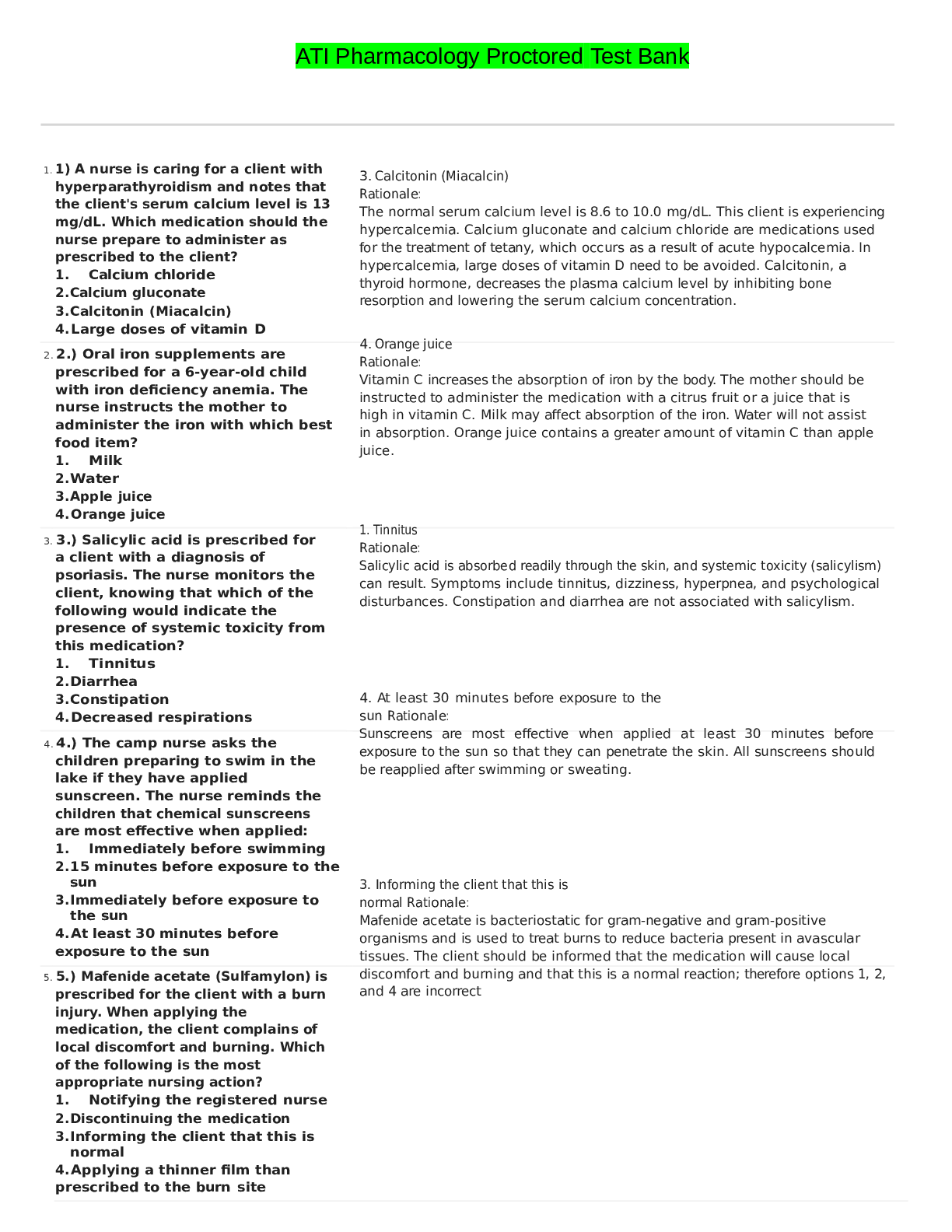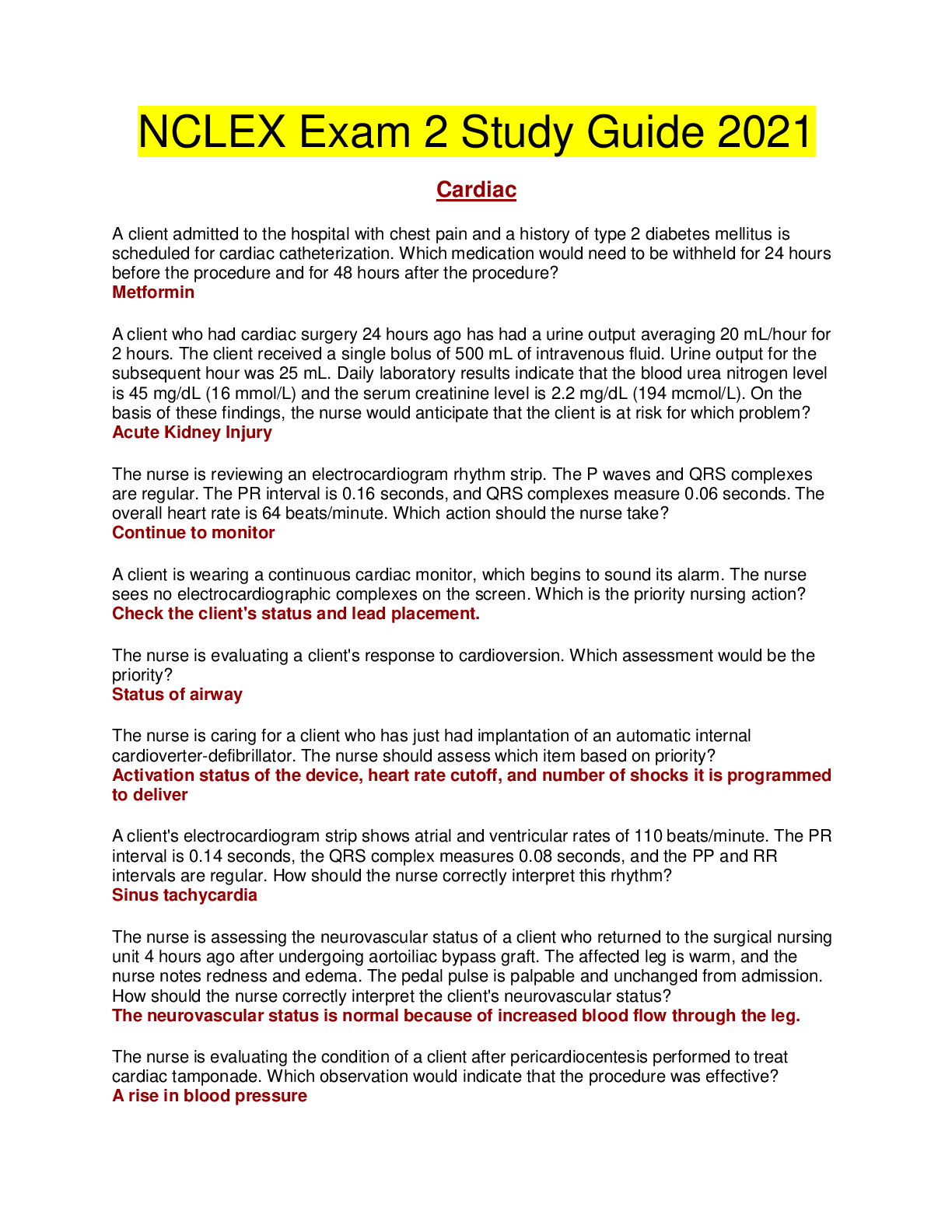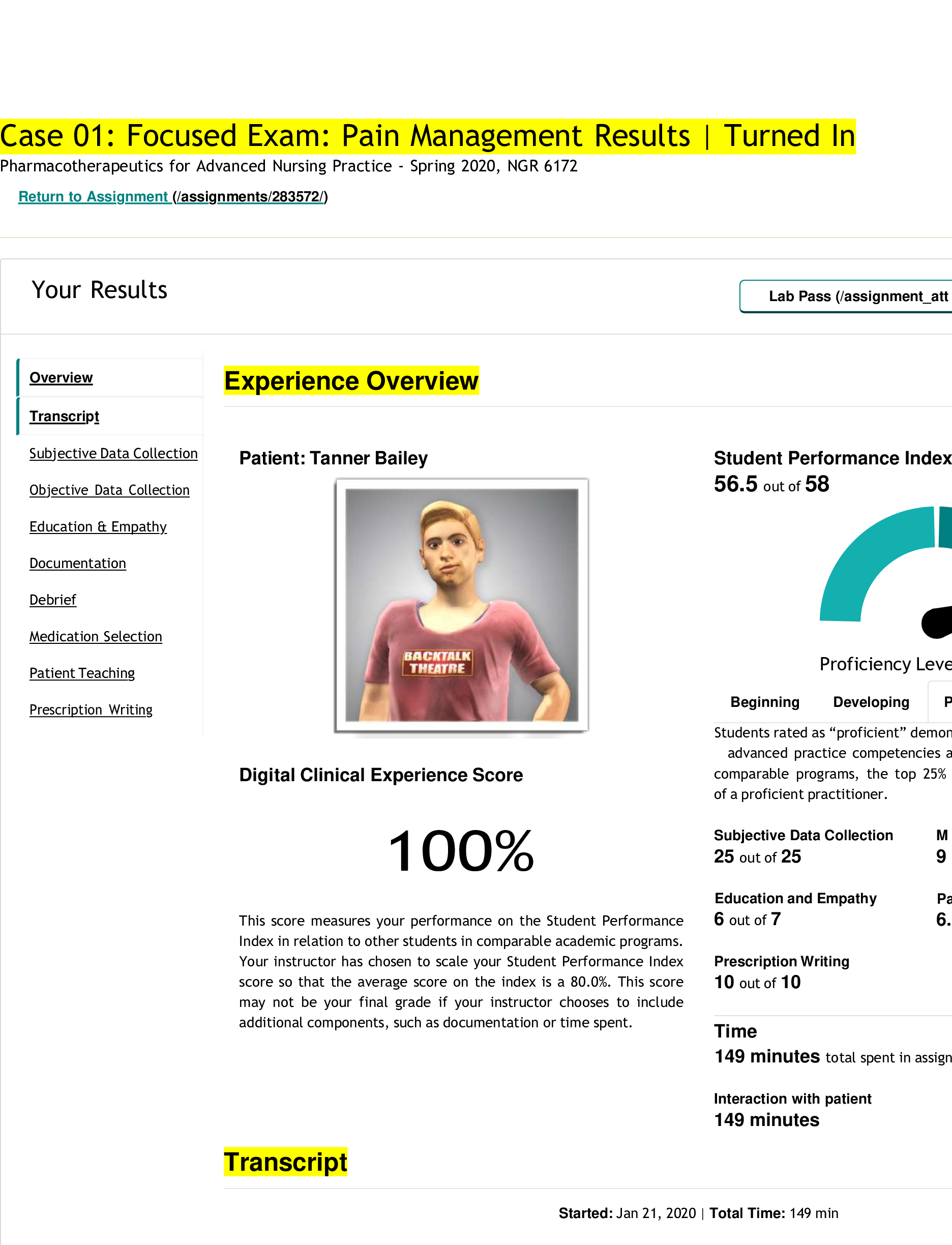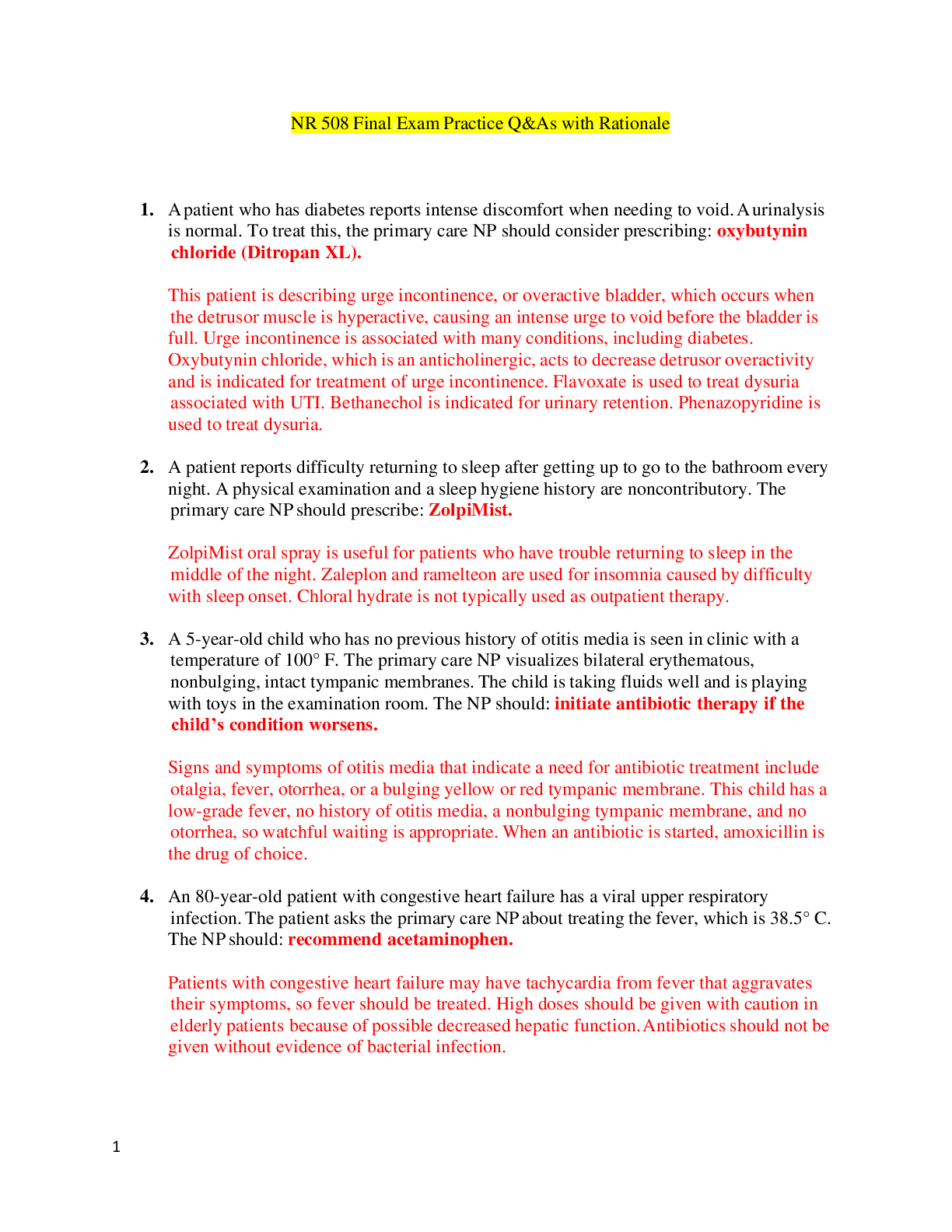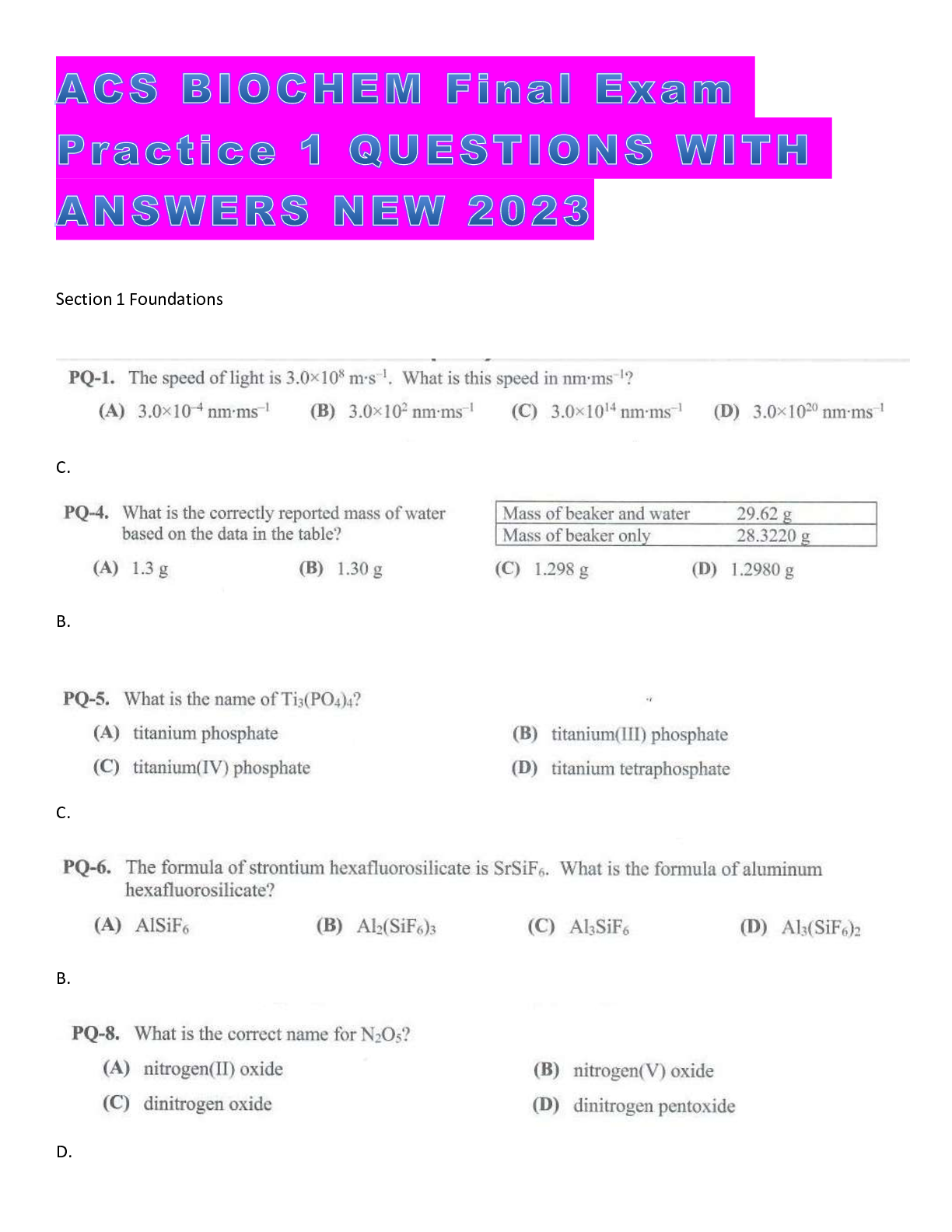*NURSING > STUDY GUIDE > Nr 508 Final Exam Practice Q&As With Rationales, Updated: Chamberlain College of Nursing (All)
Nr 508 Final Exam Practice Q&As With Rationales, Updated: Chamberlain College of Nursing
Document Content and Description Below
Nr 508 Final Exam Practice Q&As With Rationales, Updated: Chamberlain College of Nursing-1. A patient who has diabetes reports intense discomfort when needing to void. A urinalysis is normal. To treat... this, the primary care NP should consider prescribing: oxybutynin chloride (Ditropan XL). This patient is describing urge incontinence, or overactive bladder, which occurs when the detrusor muscle is hyperactive, causing an intense urge to void before the bladder is full. Urge incontinence is associated with many conditions, including diabetes. Oxybutynin chloride, which is an anticholinergic, acts to decrease detrusor overactivity and is indicated for treatment of urge incontinence. Flavoxate is used to treat dysuria associated with UTI. Bethanechol is indicated for urinary retention. Phenazopyridine is used to treat dysuria. 2. A patient reports difficulty returning to sleep after getting up to go to the bathroom every night. A physical examination and a sleep hygiene history are noncontributory. The primary care NP should prescribe: ZolpiMist. ZolpiMist oral spray is useful for patients who have trouble returning to sleep in the middle of the night. Zaleplon and ramelteon are used for insomnia caused by difficulty with sleep onset. Chloral hydrate is not typically used as outpatient therapy. 3. A 5-year-old child who has no previous history of otitis media is seen in clinic with a temperature of 100° F. The primary care NP visualizes bilateral erythematous, nonbulging, intact tympanic membranes. The child is taking fluids well and is playing with toys in the examination room. The NP should: initiate antibiotic therapy if the child’s condition worsens. Signs and symptoms of otitis media that indicate a need for antibiotic treatment include otalgia, fever, otorrhea, or a bulging yellow or red tympanic membrane. This child has a low-grade fever, no history of otitis media, a nonbulging tympanic membrane, and no otorrhea, so watchful waiting is appropriate. When an antibiotic is started, amoxicillin is the drug of choice. 4. An 80-year-old patient with congestive heart failure has a viral upper respiratory infection. The patient asks the primary care NP about treating the fever, which is 38.5° C. The NP should: recommend acetaminophen. Patients with congestive heart failure may have tachycardia from fever that aggravates their symptoms, so fever should be treated. High doses should be given with caution in elderly patients because of possible decreased hepatic function. Antibiotics should not be given without evidence of bacterial infection. 5. A patient who takes levodopa and carbidopa for Parkinson’s disease reports experiencing freezing episodes between doses. The primary care NP should consider using: apomorphine. Apomorphine injection is used for acute treatment of immobility known as “freezing.” 6. A patient is being tapered from long-term therapy with prednisolone and reports weight loss and fatigue. The primary care NP should counsel this patient to: increase the dose of prednisolone to the most recent amount taken. Sudden discontinuation or rapid tapering of glucocorticoids in patients who have developed adrenal suppression can precipitate symptoms of adrenal insufficiency, including nausea, weakness, depression, anorexia, myalgia, hypotension, and hypoglycemia. When patients experience these symptoms during a drug taper, the dose should be increased to the last dose. Vitamin D deficiency is common while taking glucocorticoids, but these are not symptoms of vitamin D deficiency. Changing to another glucocorticoid is not recommended. Patients should be taught to report the side effects so that action can be taken and should not be told that they are to be expected. 7. The primary care nurse practitioner (NP) sees a 50-year-old woman who reports frequent leakage of urine. The NP learns that this occurs when she laughs or sneezes. She also reports having an increased urge to void even when her bladder is not full. She is not taking any medications. The NP should: prescribe desmopressin (DDAVP). A focused history with a careful physical examination is essential for determining the cause of incontinence. Urinalysis can rule out urinary tract infection (UTI), which can cause incontinence. Medications are prescribed after determining the cause, if any, and treating underlying conditions. Exercises to strengthen the pelvic muscles are part of treatment. 8. A 7-year-old patient who has severe asthma takes oral prednisone daily. At a well-child examination, the primary care NP notes a decrease in the child’s linear growth rate. The NP should consult the child’s asthma specialist about: giving a double dose of prednisone every other day. Administration of a double dose of a glucocorticoid every other morning has been found to cause less suppression of the HPA axis and less growth suppression in children. Because the child has severe asthma, an oral steroid is necessary. Growth hormone therapy is not indicated. Twice-daily dosing would not change the HPA axis suppression. [Show More]
Last updated: 1 year ago
Preview 1 out of 17 pages
Instant download
Buy this document to get the full access instantly
Instant Download Access after purchase
Add to cartInstant download
Also available in bundle (1)
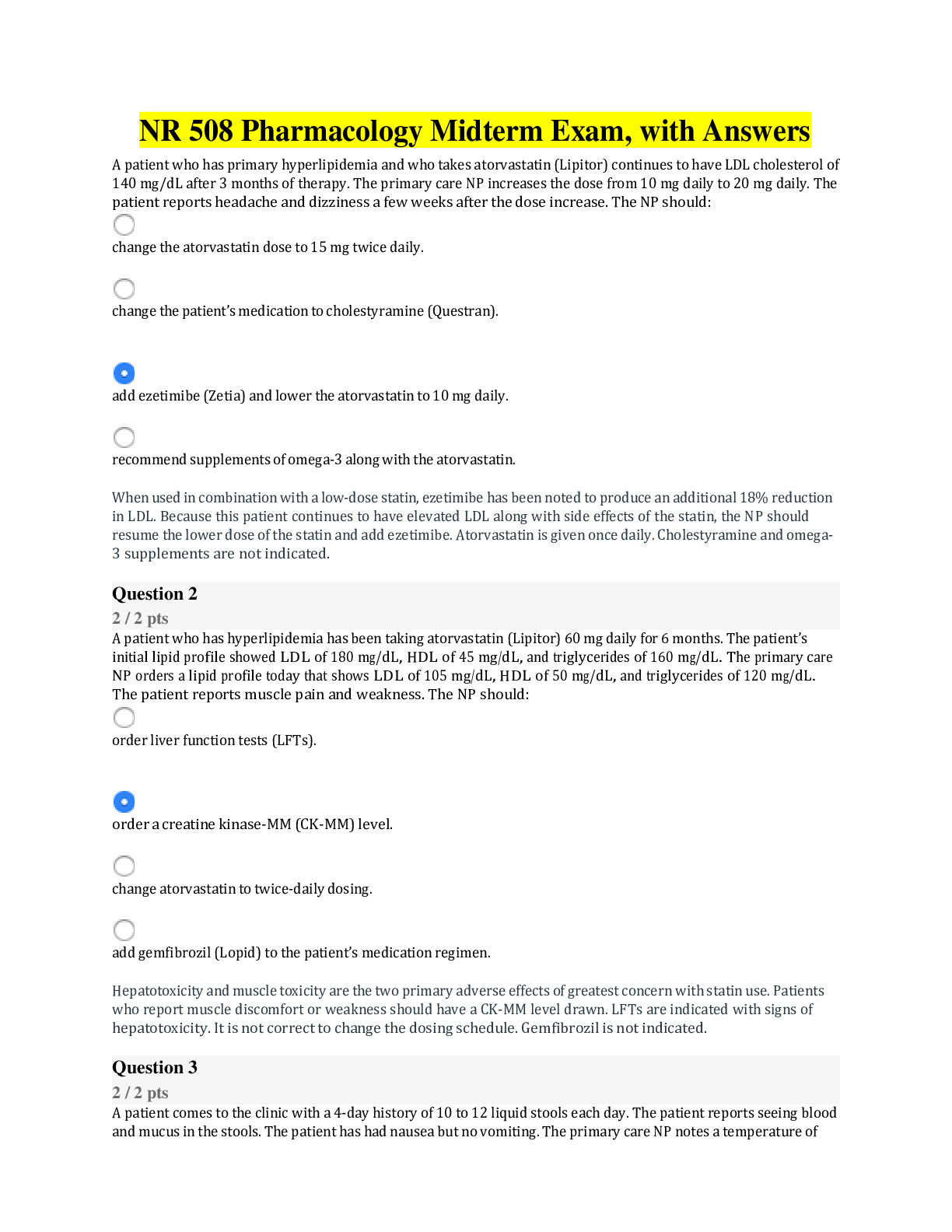
Nr 508 Final Exam Practice Q&As With Rationales, Updated: Chamberlain College of Nursing
Nr 508 Final Exam Practice Q&As With Rationales, Updated: Chamberlain College of Nursing
By PROF 2 years ago
$60.5
6
Reviews( 0 )
Document information
Connected school, study & course
About the document
Uploaded On
Aug 02, 2021
Number of pages
17
Written in
Additional information
This document has been written for:
Uploaded
Aug 02, 2021
Downloads
0
Views
58

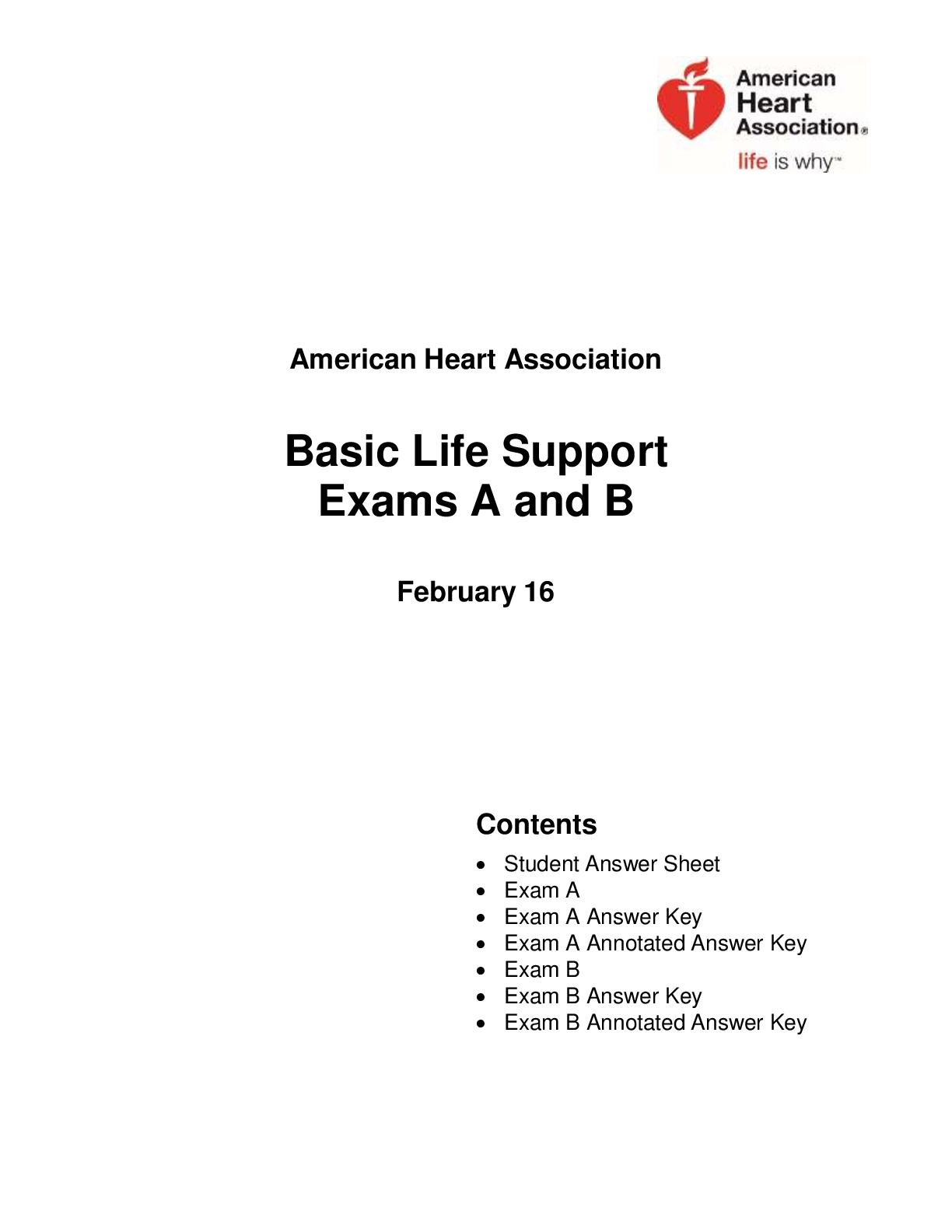


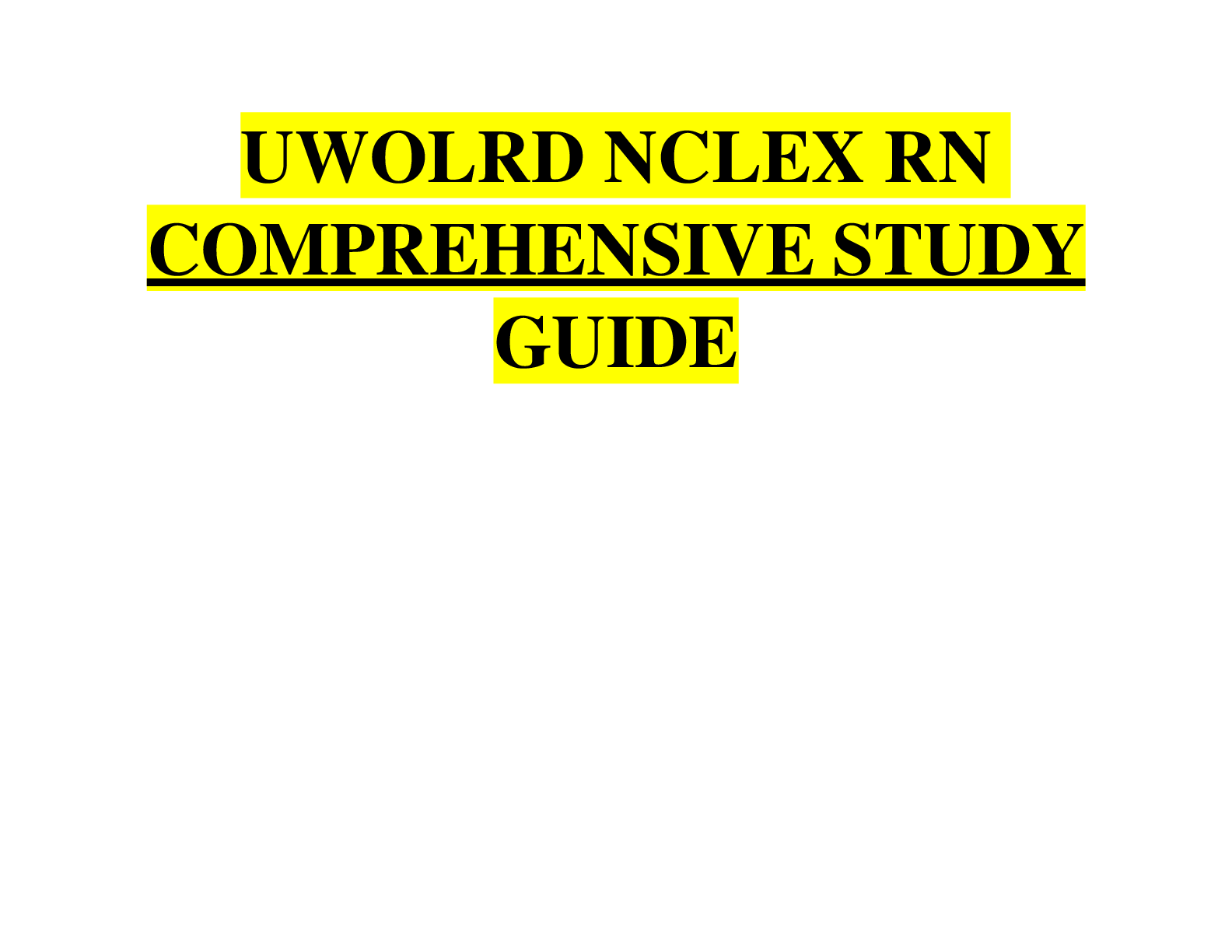
.png)

